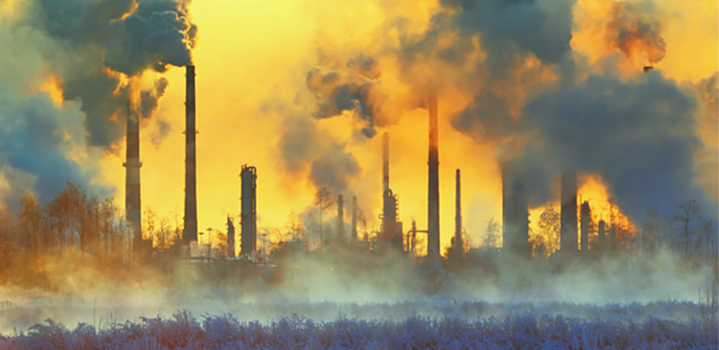Fossil Fuel Dependence Pollutes our Planet and our Bodies
By Michael Green, CEO of Center for Environmental Health

The primary focus of the clean energy debate for over a decade now has been our rapidly warming planet. It’s not hard to understand why. Each year, we endure record-setting temperatures and more persistent and severe heat waves that shorten the lives of millions around the world, watch helplessly as our neighbors’ homes burn, our fellow citizens flee flooded streets, and the oceans rise higher and faster. And science tells us it’s going to get much worse.
Unfortunately, the human health effects of our current toxic energy choices continue to receive less attention. As someone dedicated to protecting people from toxic chemicals, I believe we need to pay more attention to another deadly aspect of our addiction to oil and gas: the impact petrochemicals have on our health and the chemical industry’s toxic invasion of our bodies.
Fracking is Bad for our Health
Fracking, a highly polluting process that involves injecting massive amounts of water, sand and toxic chemicals into the ground to fracture rock and extract “natural” oil and gas is promoted by many, including some proclaiming themselves to be “environmentalists,” as a “bridge” to a clean energy future.
Let’s be clear, blasting billions of gallons of toxic chemicals into the same ground that gives us the food we eat and the water we drink not only contributes to greenhouse gas emissions, it contaminates groundwater, pollutes our air, and endangers the health of people and animals alike. In fact, many of the deadliest chemicals that the Center for Environmental Health (CEH) works to eliminate from consumer products are found in fracking fluids that are making people and the planet so sick.
The U.S. has steadily increased its dependence on natural gas despite studies showing that more than 300 different chemicals used in the fracking process have been linked to higher cancer risks, increased asthma attacks, higher hospitalization rates, upper respiratory problems and rashes, and pose threats to all systems of the body including the sensory, gastrointestinal, immune, reproductive, cardiovascular, endocrine, and nervous systems, among others. Recently, CEH released a peer-reviewed paper showing that substances widely used in fracking operations can cause impaired brain function in infants, children, and young adults. With oil and gas corporations hiding additional chemicals under “trade secret” claims, the number of toxic chemicals used in the process may be far higher.
Fracking can also upend communities’ social systems, bringing traffic problems and creating industrial disruptions and noise, leading to increased rates of hypertension, sleep disturbance, cardiovascular disease, and stroke. Furthermore, natural gas and oil drilling sites are disproportionately located in densely populated communities of color and low-income communities that are already suffering from some of the worst air quality in the nation. Yet, fracking and other oil and gas technologies continue to be largely exempted from federal environmental laws.
The case is clear: Fracking isn’t a “bridge to a cleaner tomorrow”, it’s a roadblock to a renewable energy future that puts people’s health above corporate profits.
The Fossil Fuel and Chemical Industries: Two Peas in a Pod
When it comes to endangering public health and polluting our environment, the fossil fuel and chemical industries are two peas in a pod. The chemical industry wouldn’t exist in its current form if not for our love affair with fossil fuels – particularly our increasing affinity for natural gas. For example, plastic pollution, an issue also demanding worldwide cooperation, is made from fossil fuels. As detailed in a recent article in Surfrider:
“…plastic in the United States is now most commonly sourced from the nation’s production of “abundant and affordable” natural gas…The US natural gas boom has made plastic feedstocks really cheap and readily available. An estimated $50 billion will be invested into new and expanded US plastic production facilities, increasing production by roughly 50% in the next 10 years, and tripling the amount of plastic exports by 2030! That includes 400 new plastic processing facilities, in addition to plastic manufacturing facilities and plastic additive processing facilities, which can produce some significantly harmful chemicals including phthalates and brominated flame retardants.”
Many everyday plastic products can easily leach harmful chemicals into our food and drinks. These chemicals have been linked to cancer, thyroid disruption, memory and learning problems, delayed mental and physical development, lower IQ, advanced puberty, hormone disruption, and reduced fertility.
In other words, transitioning away from fossil fuels, and towards a clean energy economy, would also be a transition away from the mass production of toxic plastic products – simultaneously protecting human and animal health, as well as the planet’s.
Science has spoken: We need to keep the world’s remaining fossil fuels in the ground. The time is now for courageous leadership. Not just for the climate, but for our health.
